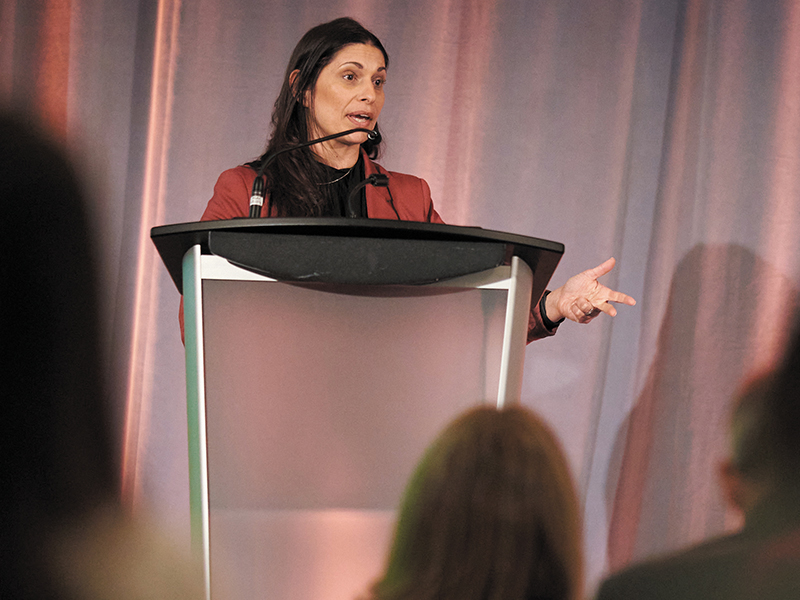
In the wake of the coronavirus pandemic, five major stressors are impacting Canadians’ overall well-being, with four of these related to finances: the knowledge gap, financial stress at home and work, retirement and basic needs, said Margaret Adaniel, head of retirement marketing at Manulife Investment Management, during a session at Benefits Canada‘s 2022 DC Plan Summit.
Drawing from the investment manager’s latest study on stress, finances and well-being, she noted respondents’ financial positions have improved. Indeed, in the first three-quarters of the coronavirus pandemic, the average Canadian household saved about $10,000 more than they had pre-pandemic. However, the majority said they were far more financially stressed.
Read: Canadians prioritizing financial wellness planning in pandemic economy: survey
“A big part of that was people recognized they didn’t have the financial information or understanding they needed,” she said. “As well, they really needed support to manage these conflicting priorities that were starting to surface or exist. . . . So that knowledge gap was actually far more prevalent than it was before.”
In terms of stress at work and home, Adaniel highlighted how peoples’ worlds have collided during the pandemic. Most respondents said their worry about finances is impacting their productivity at work. “If I’m worried about my finances and it’s taking away from my ability to be productive, . . . there’s an actual cost to companies.”
Half of the study’s respondents reported they’re on track for retirement, she said, but a third said they’re behind. Diving deeper into people’s specific concerns, the study found they’re worried about health care, shelter and food. “A third are saying, ‘I don’t think I’m going to have enough money to actually retire — not retire comfortably or not retire in the way I hoped, but actually retire.’”
Looking further, Adaniel noted the pandemic is affecting different cohorts in different ways. In the study, women and individuals younger than age 36 were far more concerned about being able to cover the basics than other groups.
Read: Pandemic impacting employees’ financial well-being, work productivity: survey
“It’s a reality that there is a group saying, ‘Forget retirement. I don’t know if I can actually cover my rent this month. Or I don’t know if I can actually cover my food to the degree that I need to for my family.’ That’s a huge issue.”
Considering these stresses and the growing divide between different cohorts, the study also found people reported feeling depressed, lonely and stressed, which all impacts mental health, she said. “When you think about this growing divide, it’s not just in money, it’s also in our physical and our mental health.”
Another trend revealed by the study is the growing dependence on employers, with respondents saying they’re looking to their employers to get on track and find the right support. In addition to expecting the provision of workplace benefits and retirement savings plans, they also want information to help them make the right decisions in life, said Adaniel. “There’s a very different dependence that is actually growing when it comes to an employee and employer relationship.”
Read: Webinar: 2020 CAP Member Survey: Retirement savings, financial well-being in the era of coronavirus
Ultimately, the study connected the dots between work, wellness and wealth, she added, noting advice connects these elements together. However, just half of study respondents said they have a financial advisor.
“It’s almost thinking about it like a personal trainer. If I have someone who’s checking in with me, who’s making sure I’ve got a plan, who’s helping me make decisions or stay calm in times of market volatility, I’m actually staying on track. And that’s the biggest part of not just taking an action, but staying true to the action and following through.”
